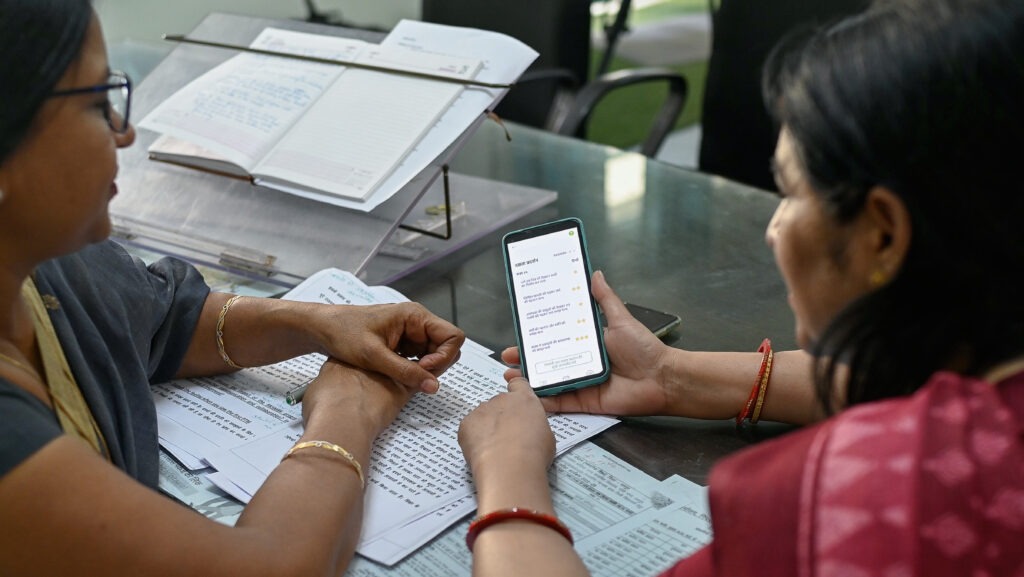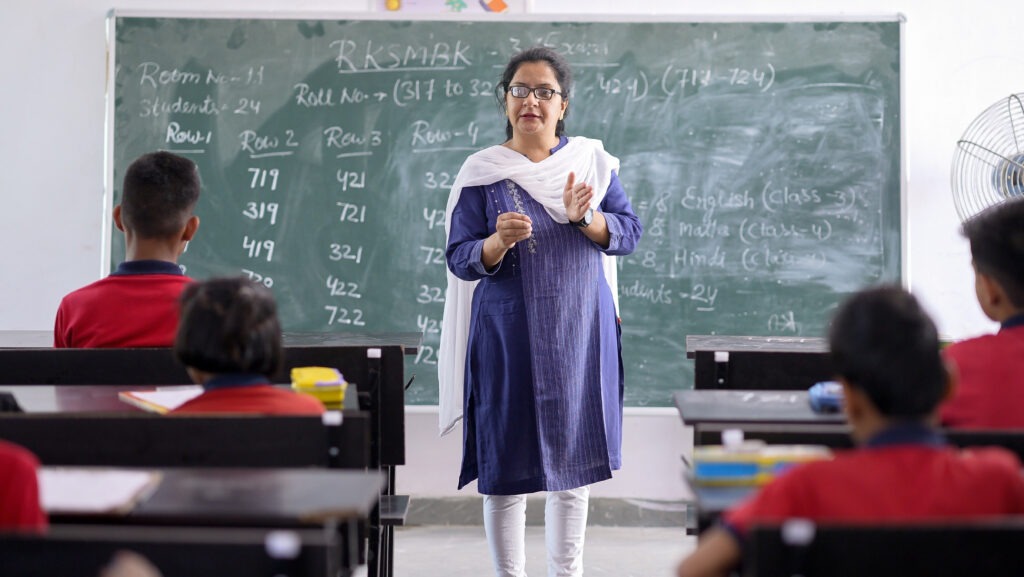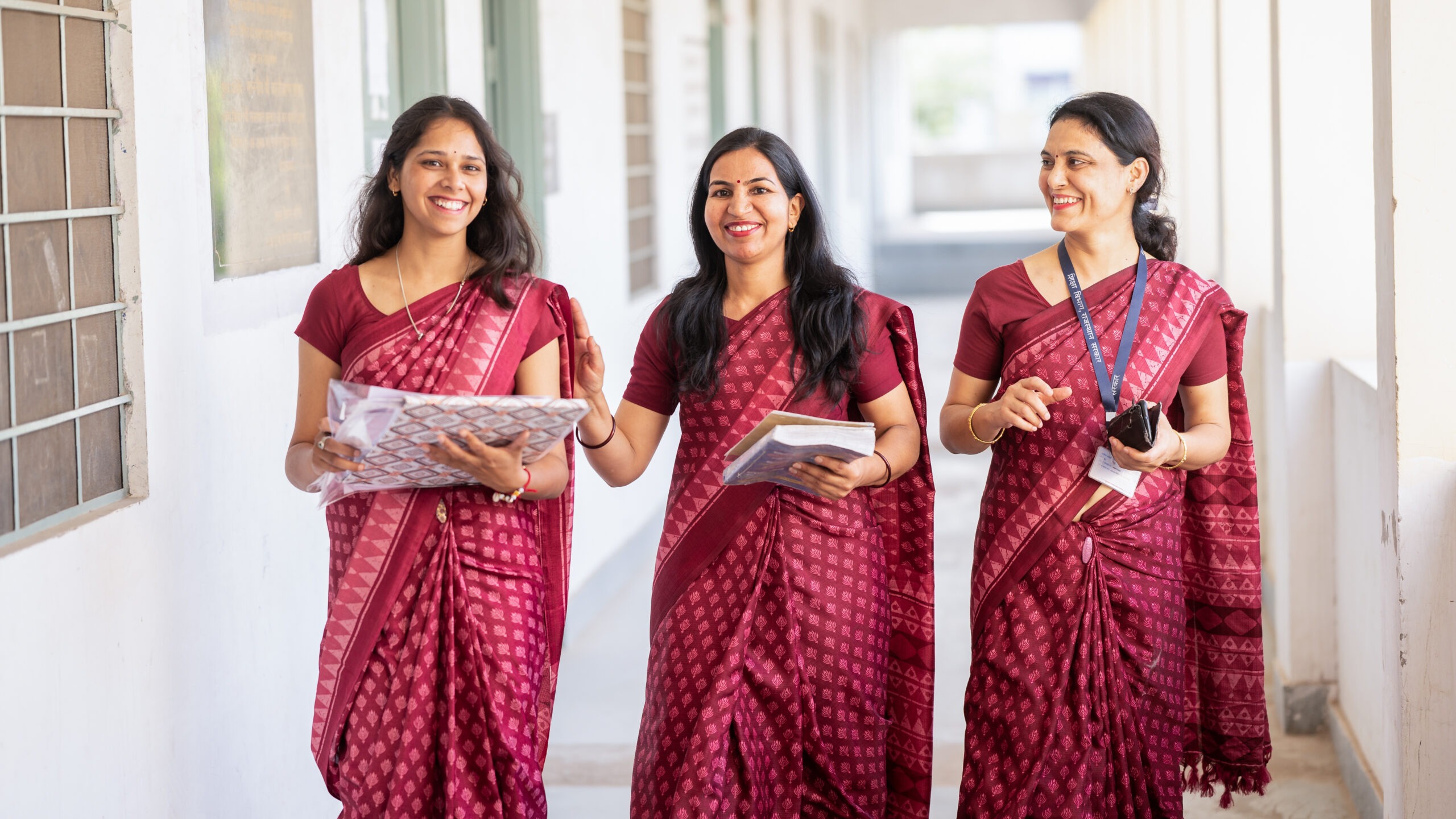Through Rajasthan ke Shiksha Mai Badhte Kadam (RKSMBK), a machine learning tool is transforming the classroom experience for students throughout the state. The initiative equips teachers with an app to digitize and analyze assessments – allowing them to quickly identify the learning level and needs of each child – and provides resources to help them tailor the curriculum accordingly.
4.6 M
students impacted
237 K
teachers supported
70 %
utilization by Rajasthan teachers
Meeting Students at Their Learning Levels
Step into any classroom and you’ll find that no two students are just alike. Each has their own learning style and everyone comes in with their own individual needs. Understanding and effectively addressing those needs begins with the right data. Teachers need to know each student’s learning level, where the student can benefit from additional instruction, and when they are ready to advance to the next level — so that students have the support they need to thrive.
Rajasthan ke Shiksha Mai Badhte Kadam (RKSMBK) was launched to connect teachers in Rajasthan, a state in northwest India, with the critical information and resources they need to support students. One of the foundations of this initiative is an app that uses machine learning (ML) technology for assessments. The tool makes it possible to quickly process and structure data, helping teachers to gather and interpret student data more efficiently than ever before.
The program represents three major opportunities to advance student outcomes:
• Optimizing teachers’ time so they can focus on students instead of administrative tasks
• Personalizing instruction according to the learning levels of each student
• Engaging parents in their child’s learning

Optimizing Time Spent by Teachers
Student assessments are indispensable in the classroom, and so is a teacher’s time. Rather than having teachers spend hours developing test questions and grading papers, the RKSMBK initiative leverages technology so teachers can do what they do best – teach. Even better, they are equipped with actionable data so they can customize curriculum to fit the needs of their class.
Rather than having each teacher spend time developing new testing materials, a central set of questions is designed by experts from the State Council of Educational Research and Training (SCERT) to determine each child’s progress toward key competencies. After students complete the assessment, answer sheets are reviewed using a tool on the teacher’s mobile device, which converts a photo of the answer sheet into a text format. It’s a process called Optical Character Recognition (OCR) that is based on an ML algorithm – and it reduces the time spent assessing each child from four minutes to only 20 seconds. With each assessment, teachers receive access to actionable data on every student.
Since its implementation, the program has been able to digitize and assess 15 million answer sheets with 96% accuracy in only three days, as compared to two weeks previously in each assessment cycle. More than 70% of teachers in Rajasthan are now using the tool.
Hear how teachers and administrators at the Mahatma Gandhi Government School in Jaipur benefit from the initiative.
Competency-Based, Personalized Learning
Traditionally, the education system has focused on progress against the syllabus, with a standardized pace and approach to learning for all students. What this robust and timely student-level data makes possible is a shift toward competency-based learning, which focuses instead on mastering specific skills. Success is based on a student’s ability to do grade-level math, for example, as opposed to simply covering the right chapters in the textbook.
Based on these new insights, teachers can focus on growth areas for each student in the class based on their existing learning levels. To support the teacher in this journey, the app offers personalized recommendations on which competencies to highlight and even spotlights which students to focus on based on their assessment results.
Overall, there has been a significant reduction in the number of students who were at least one to two grades behind in their competency levels, and more children are catching up to grade-level competency.

Making Room for Higher Parent-Teacher Engagement
While these tools and resources helped increase the learning outcomes of students, engaging parents in the learning journey is a key element in lowering students’ dropout rates. With the use of technology at its core, report cards are digitally generated and provide competency-based information to parents so they can better understand their child’s performance and engage with their education. In December 2022, over 70% of parents attended parent-teacher meetings, the highest attendance ever recorded in Rajasthan.
Quality Education at Scale
The Rajasthan initiative has been introduced in 65,000 schools, impacting 237,000 teachers and 4.6 million students so far. The state’s innovative use of technology to complement in-school teaching has paved the way for other governments to impart quality education at scale and unlock opportunities for children and families across the country.
